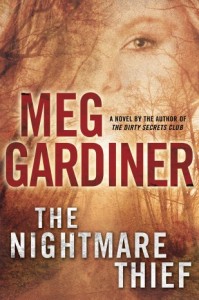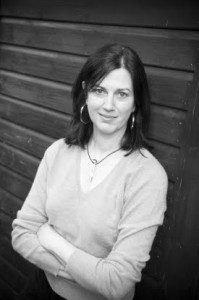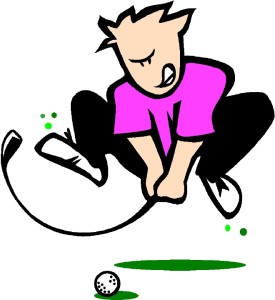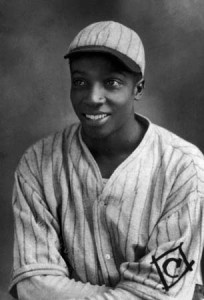Whether we begin our story with the first draft, or outline before starting, we all have the first draft of our novel waiting for us. Today’s Words of Wisdom has three excerpts from posts giving advice on first drafts. Tosca Lee provides writing mindset help with her “#1 Rule of First drafts.” Steven James lays out “Fiction Writing Keys for Non-Outliners” as one way to approach writing first drafts. Debbie Burke discusses “Outlining in Reverse” to help with revising your completed first draft.
The three posts are well-worth reading in their entirety, and, as always, are date-linked at the bottom of their respective excepts. I hope you’ll weigh in with your thoughts on these tips.

Eight novels in (ten, if you count the unpublishable ones), I have an instinct about the basic material I need to get down, more or less in order. More importantly, I have trust in the writing and editing process and faith that I can patch up the leaks—later.
For now, in the early stages, I’m only interested in one thing: getting the clay on the wheel. I trust that there are seeds in there—of things real, from me, that will resonate in another soul in months and years to come. I don’t know what they are yet and it’s not my business to force them into shape.
I have a few rules for this process but the first is the one I go back to every time, and it is this:
Write like no one will ever read it.
“But what about the audience? You have to think about them!” Forget them. Everything you do from your edits on will be about them. But for now, write with the candor you would in a secret journal. This isn’t about pantsing or plotting. It’s about capturing the grit you need without worrying that it’s pretty or eloquent or clean enough. Don’t be pretty. Be raw.
If you are an aspiring writer whose end goal is to be published, let me tell you something: you will never be as bold and daring as you are in those first years before your work gets published. Before critics post public reviews of your work and readers rank it alongside blenders on Amazon. Before even accolades usher their own kind of doubt into the next endeavor. This undiscovered period in your life is an advantage you won’t have twice. Use it.
These days, I have to trick myself into following this rule. I know my agent, editor, and a movie producer are waiting for my first draft. I want them to like it. Oh, who am I kidding—I want them to tell me it’s the best thing they’ve ever read, that they wept, told their therapist, and pre-ordered 100 copies for friends and distant acquaintances.
But the only way I will touch one cell of their soul is if I banish their faces from my mind. No one will read this. It is my mantra. This is me, writing secret stuff, dealing some audacious literary badassery in private. Time to edit, censor, and make coherent later. The good stuff happens now.
Tosca Lee—October 28, 2015
When people outline their stories, they’ll inevitably come up with ideas for scenes that they think are important to the plot, but the transitions between these scenes (in terms of the character’s motivation to move to another place or take a specific action) will often be weak.
Why?
The impetus to move the story to the next plot point is so strong that it can end up overriding the believability of the character’s choice in that moment of the story.
Read that last sentence again. It’s a key one.
Stated another way, the author imposes the plot onto the clay without letting it be shaped by the essential forces of believability, causality, and context.
You might have had this experience: you’re reading a novel and it feels like there’s an agenda to the story that isn’t dictated by the narrative events. This is a typical problem for people who outline their stories. Instead, listen to the story, and respond to where it takes you.
You can often tell that an author outlined or “plotted out” her story when you read a book and find yourself thinking things like,
◦ “But I thought she was shy? Why would she act like that?”
◦ “I don’t get it. That doesn’t make sense. He would never say that.”
◦ “What?! I thought she was . . . ?”
◦ “Whatever happened to the . . . ? Couldn’t she use that right now?”
◦ “I don’t understand why they’re not . . . ”
This happens when an author stops asking, “What would naturally happen next?” and starts asking, “What do I need to have happen to move this story toward the climax?”
The first question grows from the story itself, the second places artificial pressure on the story to do something that might not be causally or believably connected to the story events that just happened.
As soon as your character doesn’t act in a believable way, it’ll cause readers to ask, “Why doesn’t she just . . . ?” And as soon as that happens, they’re no longer emotionally present in the story.
As you learn to feel out the direction of the story by constantly asking yourself what would naturally happen next, based on the narrative forces that shape all stories, you’ll find your characters acting in more believable and honest ways and your story will flow more smoothly, contingently, and coherently.
Here’s one of the biggest problems with starting by writing an outline: You’ll be tempted to stick to it. You’ll get to a certain place and stop digging, even though there might be an awful lot of interesting dinosaur left to uncover.
Follow rabbit trails.
Forget all that rubbish you’ve heard about staying on track and not following rabbit trails.
Yes, of course you should follow them. It’s inherent to the creative process. What you at first thought was just a rabbit trail leading nowhere in particular might take you to a breathtaking overlook that far eclipses everything you previously had in mind for your story.
If you’re going to come up with original stories, you’ll always brainstorm more scenes and write more words than you can use. This isn’t wasted effort; it’s part of the process. Every idea is a doorway to the next.
So, where to start? Put an intriguing character in a challenging situation and see how he responds. Sometimes he’ll surprise you in how he acts, or demand a bigger part in the story.
And sometimes a random character will appear out of nowhere and vie for a part in the story.
Steven James—November 3, 2014
Like a building, a finished story almost never corresponds to the initial idea. That’s why I don’t outline before writing that initial draft of discovery.
However, once the first draft is finished, I create an outline in the form of as-builts. That’s where the pantser’s errors and oversights show up. And, believe me, there will be plenty.
Oops, I forgot to install reinforcing bars before I poured the slab. Without rebar, the foundation cracks and sags. Gotta jackhammer up the concrete and start over.
Darn, I forgot to include a door that connects the kitchen and the dining room. Better get out the reciprocating saw and cut an opening in that solid wall.
Wow, the shingles on the roof look beautiful…except some of the trusses underneath are missing. The first snowfall causes the whole thing to collapse. Drat.
You get the idea.
Dennis Foley, novelist/screenwriter/educator extraordinaire, introduced me to the concept of “as built” outlines in fiction. He recommends writing in three steps:
- Think it up;
- Write it up;
- Fix it up.
Pantsers feel strangled if we try to adhere to a formal outline during the initial draft. We’d much rather give free rein to our imaginations during Steps 1 and 2.
But, eventually, all that unfettered creativity needs to be organized. Step 3, the “fix it up” stage, is the time to create an “as built” outline.
Outlining in reverse points out structural problems with the plot: events that are out of order, a character who shows up simultaneously in two different places, missing time periods that must be accounted for, lapses in logic, etc. Once those glitches are repaired, the story becomes a coherent sequence of rising complications that ultimately delivers a satisfying climax.
My WIP, Lost in Irma, takes place in Florida during Hurricane Irma in September, 2017, a catastrophe that left 17 million people without electricity. The story covers a two-week period during and after the storm and had to adhere to actual events in the order that they occurred.
The main characters, Tawny Lindholm and Tillman Rosenbaum, are visiting Tillman’s high school coach, Smoky Lido, in New Port Richey when Irma hits. During the height of the storm, Smoky disappears. Tawny and Tillman spend the rest of the book trying to find him. Is he dead or alive? Did he flee because of gambling debts? Was he abducted by thugs he owed money to? Or did he vanish into the storm to commit suicide?
Hurricane-related emergencies overwhelmed law enforcement, leaving Tawny and Tillman on their own to look for Smoky. Power blackouts, gasoline shortages, and unreliable cell service were integral to the plot. They couldn’t make phone calls or search the internet. If they drove, they risked getting stuck in floodwaters or running out of gas.
To pin down significant events on the dates they actually happened, I printed out a blank calendar from September 2017. I filled in the squares with factual information like: what time did Irma hit New Port Richey (late Saturday night, early Sunday morning); what time did the power go out there (around midnight); when did the Anclote River flood (Tuesday)?
What goes into the as-built outline?
Timelines: The chronology of events is important to nail down correctly which is why I use the calendar technique above.
Scene by scene outline – This traces major characters and plot developments. What day is it? What time is it? Where are they? What action happens?
Debbie Burke—March 3, 2020
***
- What’s your own #1 rule when writing a first draft?
- What do you think of Steven James’s advice? Do you follow “rabbit trails” when drafting?
- Do you outline your completed first draft to help with revision? If so, do you have any advice?









